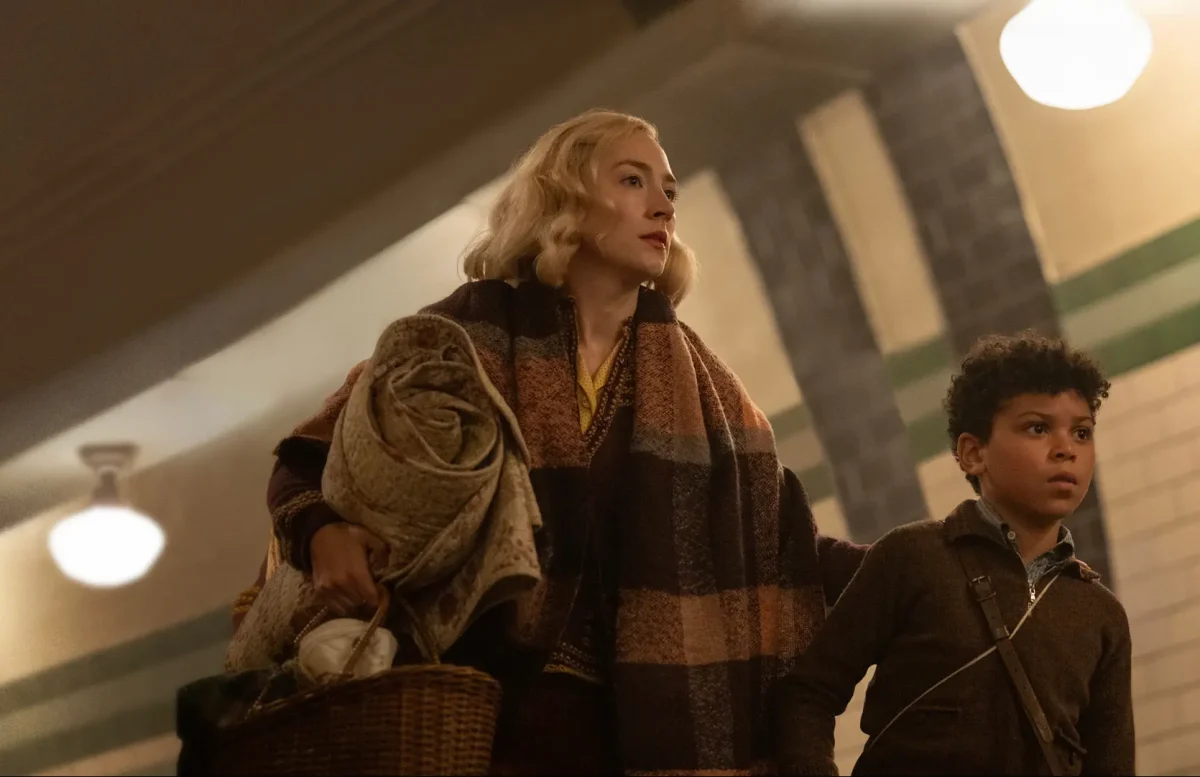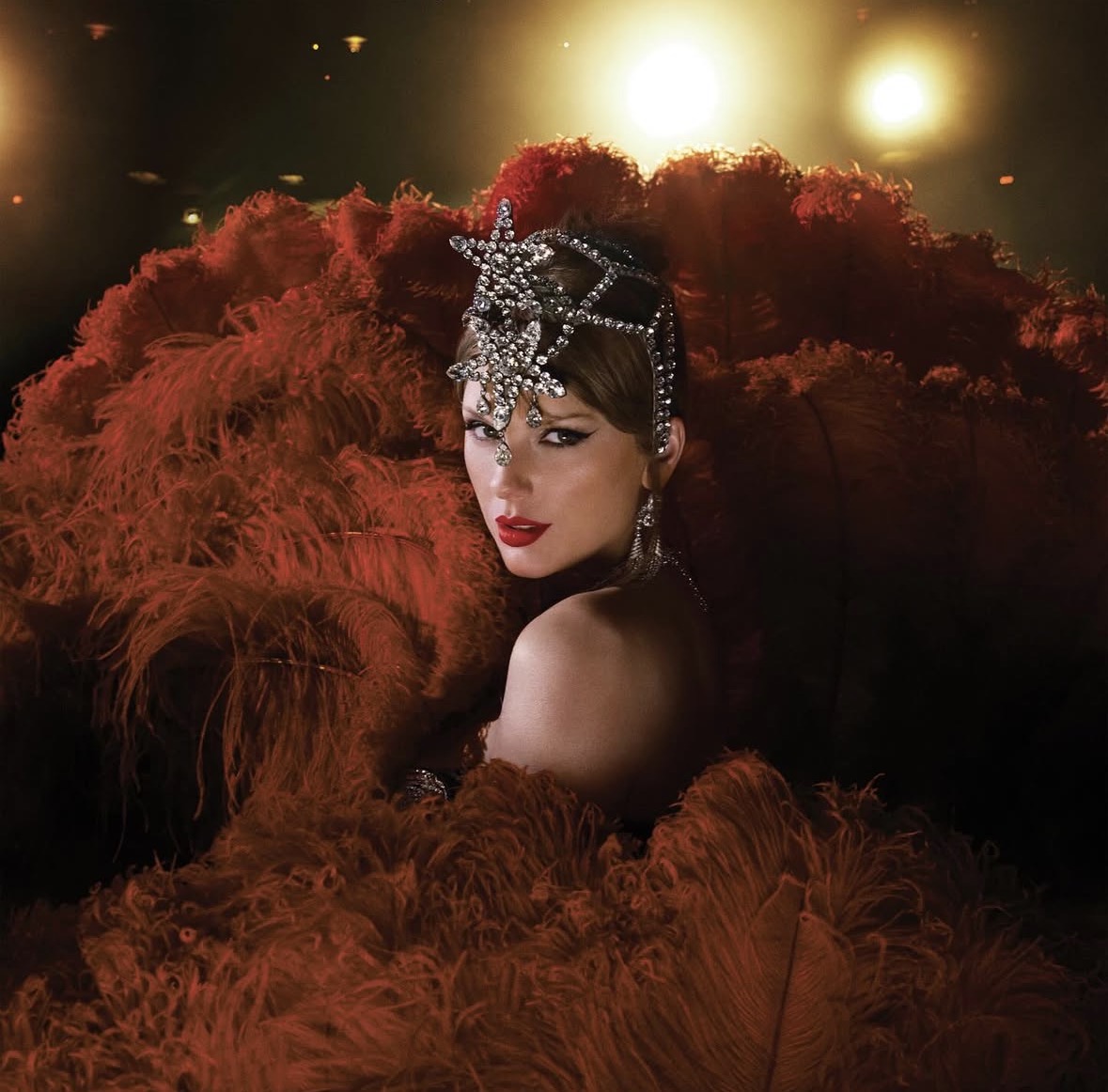For more than eight months, Nazi Germany relentlessly bombed London in a campaign known as the Blitz, a term derived from the German word “Blitzkrieg,” meaning “lightning war.” Bombs rained down from planes, obliterating homes, factories and businesses. People were killed in their sleep or at dinner if they weren’t in shelters. Yet life continued the next day–a strange resilience amidst the devastation. This grim period of World War II is the subject of “Blitz,” directed by Steve McQueen and featuring another standout performance by Saoirse Ronan. While the war film genre often feels saturated with repetitive and predictable narratives, “Blitz” stands out as a gem, offering something fresh to a crowded landscape.
The story follows George (Elliott Heffernan), a nine-year-old boy evacuated from London by his mother, Rita (Saoirse Ronan), like many children at the time. Angry with his mother for sending him away, George tells her he hates her and leaves without properly saying goodbye at the station. Frustrated by his uncertain fate–his destination is never fully clarified–George jumps off the train, determined to return to London and reunite with his family.
The plot is straightforward, centering on George’s journey as he faces challenges, meets allies and adversaries and navigates a war-torn world. What elevates the film is McQueen’s distinctive direction; sometimes, it is loud, with the terrifying sounds of bombs being exploded, and sometimes, the same staggering power is given in heartbreaking scenes portrayed by the cast.
Heffernan is adorably captivating as George. At just 11 years old, he’s not merely a promise for the future of cinema—he’s a standout in the present. Watching him on screen is mesmerizing as he navigates the devastation of war. McQueen’s script doesn’t shy away from portraying the harsh realities a black child might face during this era. Along his journey, George meets Ife (Benjamin Clementine), a kind-hearted guard and Nigerian expatriate who tries to help him get home.
In one poignant scene, George reveals that he never met his father, who was a Black man, but he doesn’t see himself the same way. Growing up in a primarily white neighborhood with white relatives has left him uncertain about his identity. However, as he spends time with Ife and witnesses his integrity and kindness, George finally acknowledges, “I am Black.”
Saoirse Ronan plays Rita, a devoted mother called to work in British factories, like many other women when the men were away at war. She has a hidden talent for singing, and Ronan’s voice is nothing short of sweet. This movie also marks the first time Ronan plays a mother, a departure from her more coming-of-age roles in “Little Women” and “Lady Bird.” Here, her performance is convincing as a resilient mother navigating wartime. Ronan could also very well make history with a dual nomination at next year’s Oscars—including one for Best Supporting Actress in “Blitz.”
However, while Ronan shines, the same cannot be said for Harris Dickinson, whose talent feels underused. A rising star with great potential, Dickinson’s role as the soldier Jack comes across as a missed opportunity. His character could have been developed into a romantic interest for Rita, a tormented soldier or even a pivotal ally to George. Instead, he’s relegated to a role that exists only to appear odd and melancholic around Rita–a real disappointment, given Dickinson’s capabilities.
Steve McQueen is one of the most refined directors of our time. He earned his well-deserved spotlight with “12 Years a Slave,” which won Best Picture at the 86th Academy Awards. His Small Axe anthology on Amazon Prime, highlighting the Black British experience, further cemented his mastery of culturally rich storytelling. In “Blitz,” McQueen brings the Black experience to the forefront through George’s eyes, adding depth and originality to the often overdone World War II genre.
Some critics have suggested that “Blitz” takes a more mainstream, digestible approach from McQueen, but this critique overlooks his mastery of language and storytelling. McQueen doesn’t dilute his message—he knows how to deliver it with clarity and impact. Moments like George’s declaration, “I am Black,” are anything but subtle. They are bold and explicit yet still feel powerful and organic. McQueen uses direct language and unflinching moments to explore themes of racial identity and the erasure of marginalized voices. It’s not about softening the blow but about using precise, compelling language to make his statement resonate. This is the strength of his talent, which ultimately makes “Blitz” work.
Rating: 4/5
“Blitz” was screened at the New York Film Festival. It will be released in select theaters on Nov. 1, followed by a streaming release on Apple TV+ on Nov. 22.





